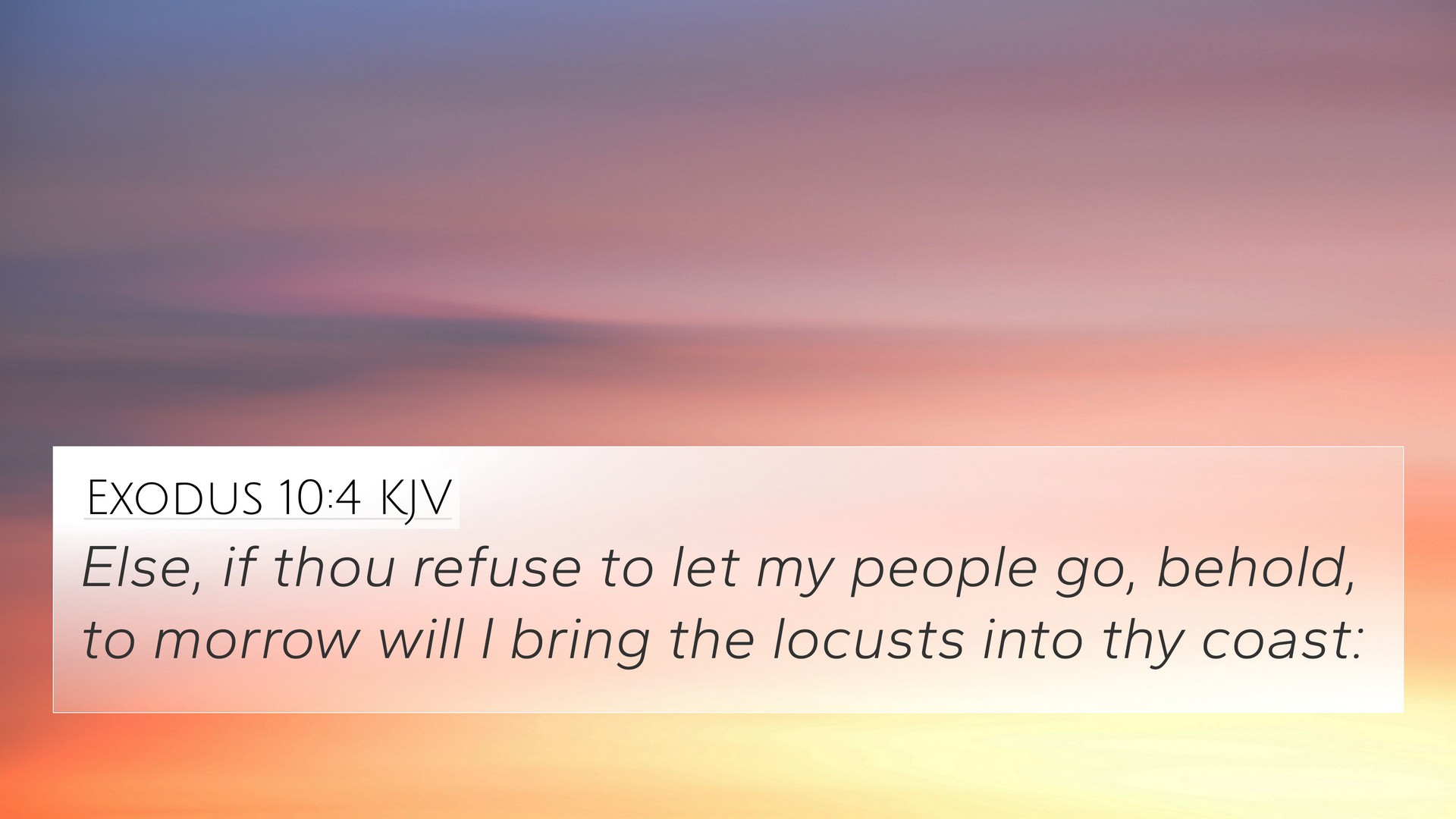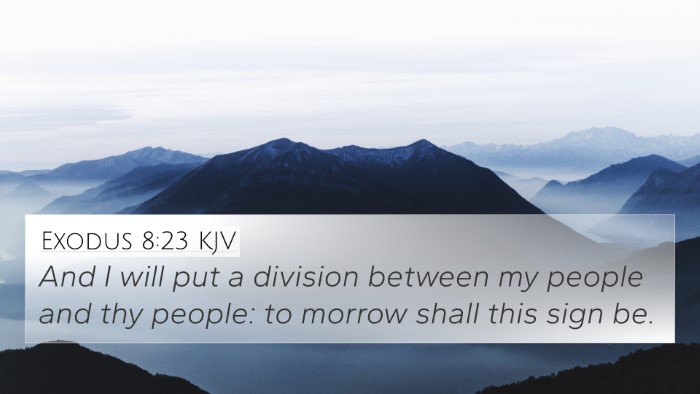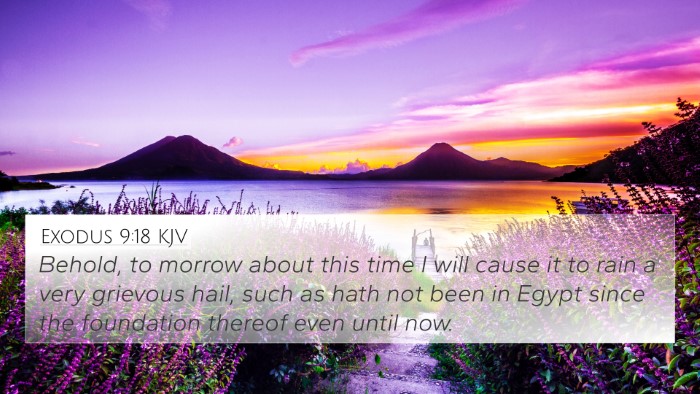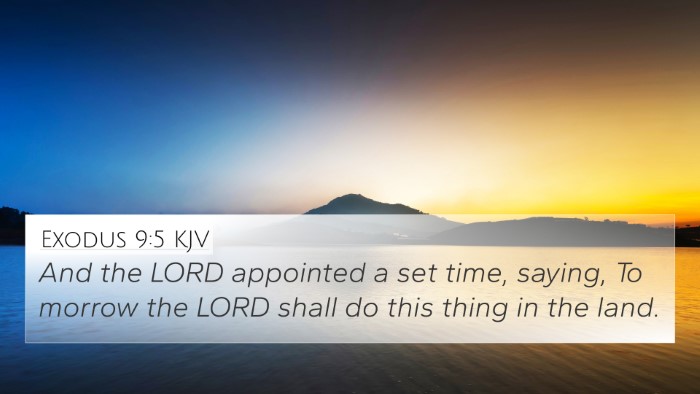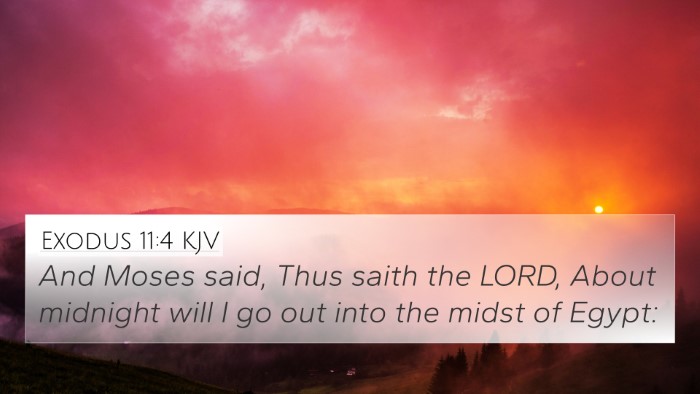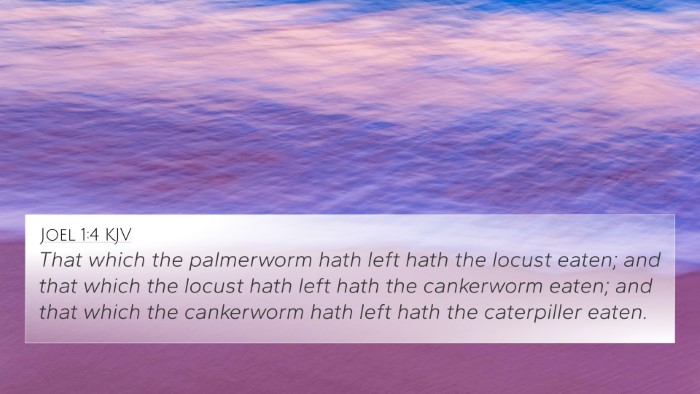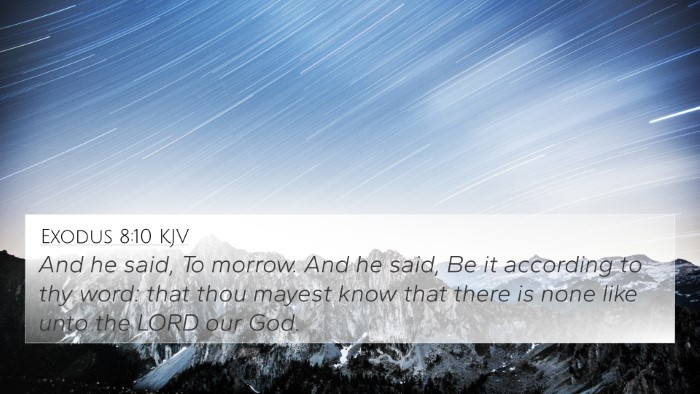Understanding Exodus 10:4
Exodus 10:4 states, "If you refuse to let them go, behold, tomorrow I will bring locusts into your territory." This verse is part of the narrative detailing the plagues that God sent upon Egypt to persuade Pharaoh to release the Israelites from bondage. Below, we examine the meaning and implications of this verse through the lens of notable public domain commentaries, including those by Matthew Henry, Albert Barnes, and Adam Clarke.
Verse Context
This verse occurs during the eighth plague, the plague of locusts. God instructs Moses to warn Pharaoh of the impending disaster if he continues to refuse to let the Israelites go. The context reflects God's sovereignty and the seriousness of disobedience against divine commands.
Commentary Insights
-
Matthew Henry:
Henry notes that this warning from Moses emphasizes God's patience and the repeated calls for repentance. He elucidates how God uses physical plagues to demonstrate His power over nature and guide Pharaoh toward humility. The locusts symbolize chaos and destruction, representing the consequences of sin and rebellion.
-
Albert Barnes:
Barnes underscores the immediacy of God's judgment in this verse. He explains that locusts would decimate crops and food supplies, highlighting the tangible repercussions of Pharaoh's stubbornness. This serves to illustrate not only severe divine wrath but also a call for acknowledgment of God's authority.
-
Adam Clarke:
Clarke places emphasis on the locusts’ devastating nature. He explains that this event is to strike fear and fearfully compel Pharaoh to comply with God's command. Clarke connects the plague of locusts to other plagues in the narrative, illustrating the cumulative impact of refusing God's will.
Thematic Connections
The verse serves as a profound reminder of the consequences of disobedience. The threat of locusts not only targets Pharaoh but extends to the entire land of Egypt, representing how failure to heed God’s warnings affects not just individuals, but communities as a whole.
Related Bible Cross-References
- Exodus 8:2 - God's warning about the second plague of frogs (the pattern of consequence for disobedience).
- Exodus 9:3 - The sixth plague, where God sends a severe pestilence, showing a progression of judgment.
- Deuteronomy 28:38 - A warning about the consequences of disobedience which includes pestilence.
- Joel 1:4 - A reference to locusts as God's judgment, linking prophetic insight to the plague narrative.
- Matthew 24:7 - Jesus mentions famines and pestilences, reflecting ongoing themes of judgment in the New Testament.
- Revelation 9:3 - This verse references locusts during the end times, showing the continuity of locust imagery as judgment.
- Psalm 105:34-35 - Mentioning the plague of locusts as a part of God's wondrous works against Egypt.
Connecting Themes and Lessons
The narrative of Exodus clearly illustrates themes of divine authority, judgment, and mercy. The connection between the warnings and the acts of God sets a format for understanding God's relationship with humanity and His desire for obedience:
- Divine Authority: The insistence of letting the Israelites go symbolizes the importance of acknowledging God’s might.
- Judgment and Consequences: The plague serves as a tangible warning that disobedience leads to consequences.
- Mercy and Repentance: The warning also represents an opportunity for Pharaoh to repent and avoid the devastation.
Conclusion
In Exodus 10:4, God demonstrates His power and the reality of judgment in response to Pharaoh's disobedience. Through the insights from various commentaries, we glean the importance of heeding divine warnings and the potential consequences of resistance. The cross-references illustrate a continuity in scripture about judgment and mercy and invite us to reflect on our own responses to God's call throughout the biblical narrative.
Tools for Further Study
For those interested in deeper studies and connections between Bible verses, a variety of resources can enhance understanding:
- Bible Concordance: Useful for locating words and themes across the text.
- Bible Cross-Reference Guide: A systematic approach to finding related scriptures.
- Cross-Reference Bible Study: Helps in making thematic connections efficiently.
- Bible Chain References: A useful tool in following thematic paths through verses.
- Comprehensive Bible Cross-Reference Materials: Materials that provide in-depth linkage across various passages.
